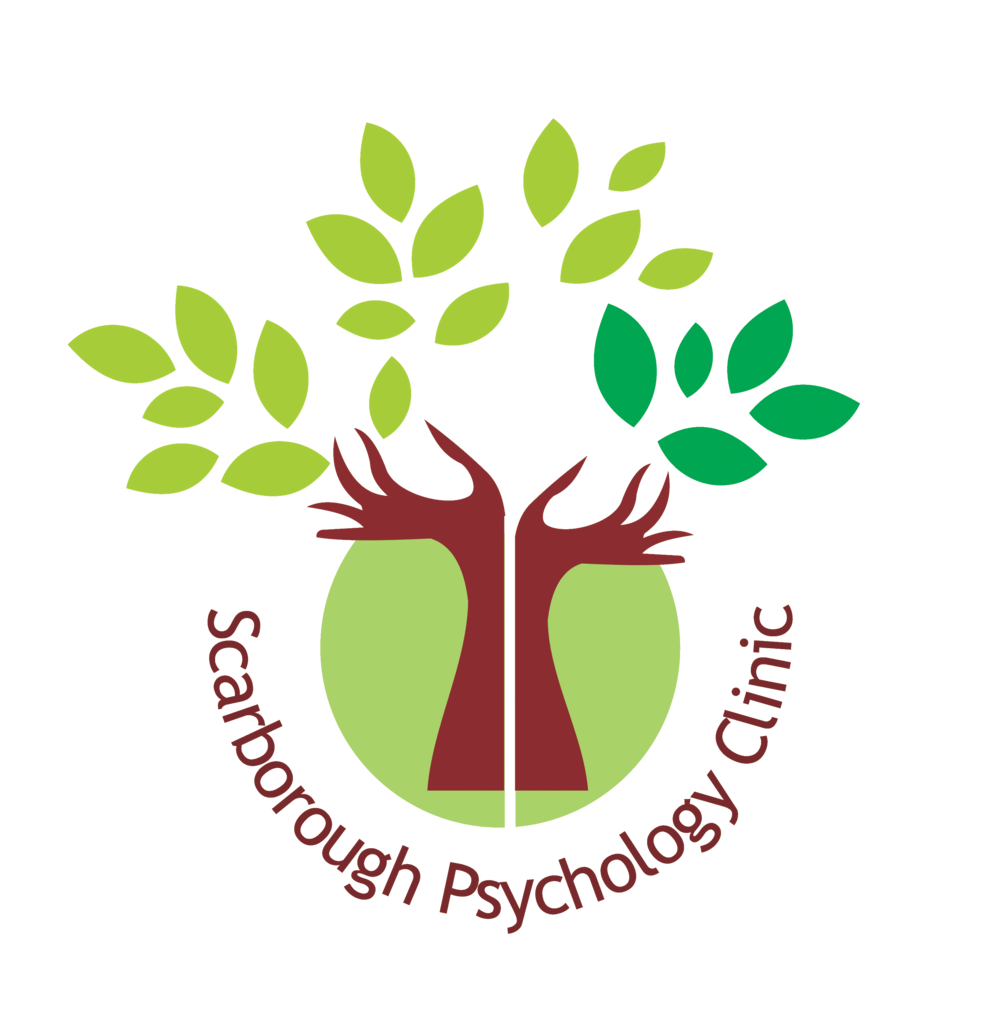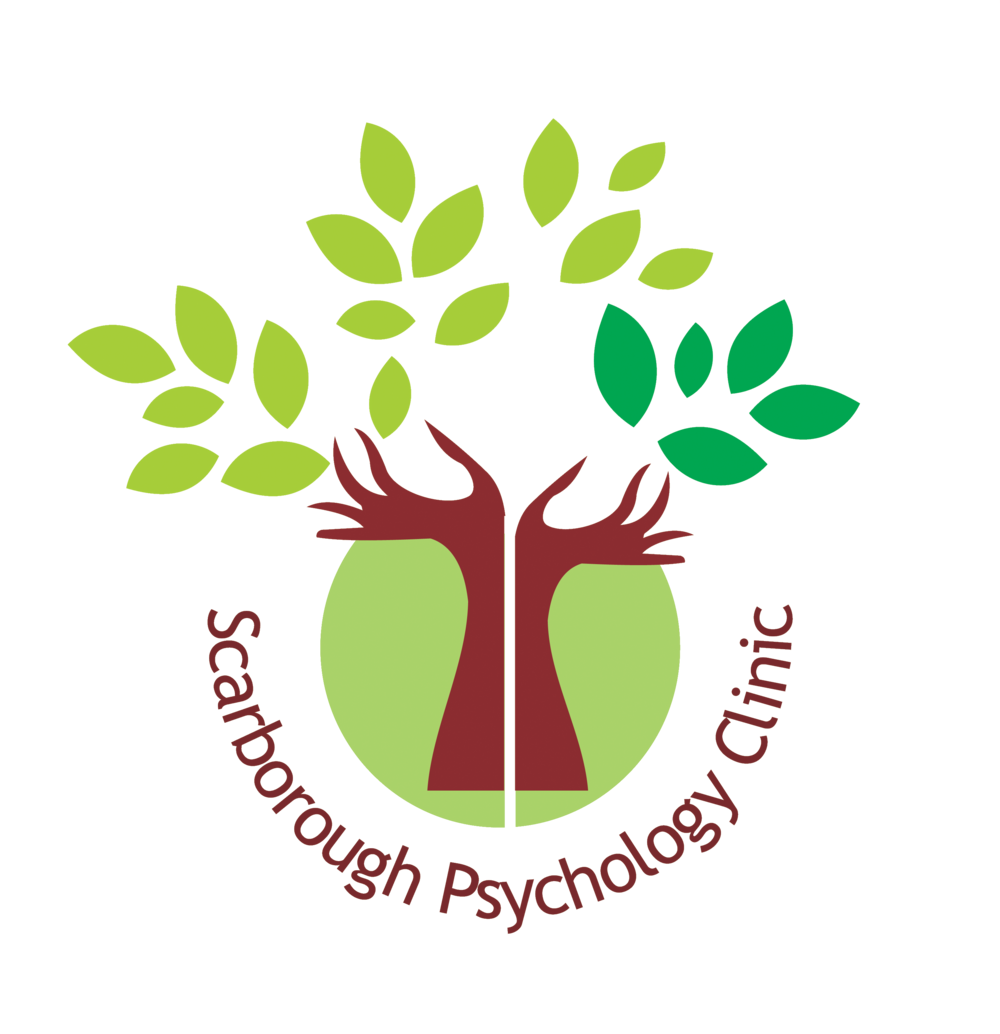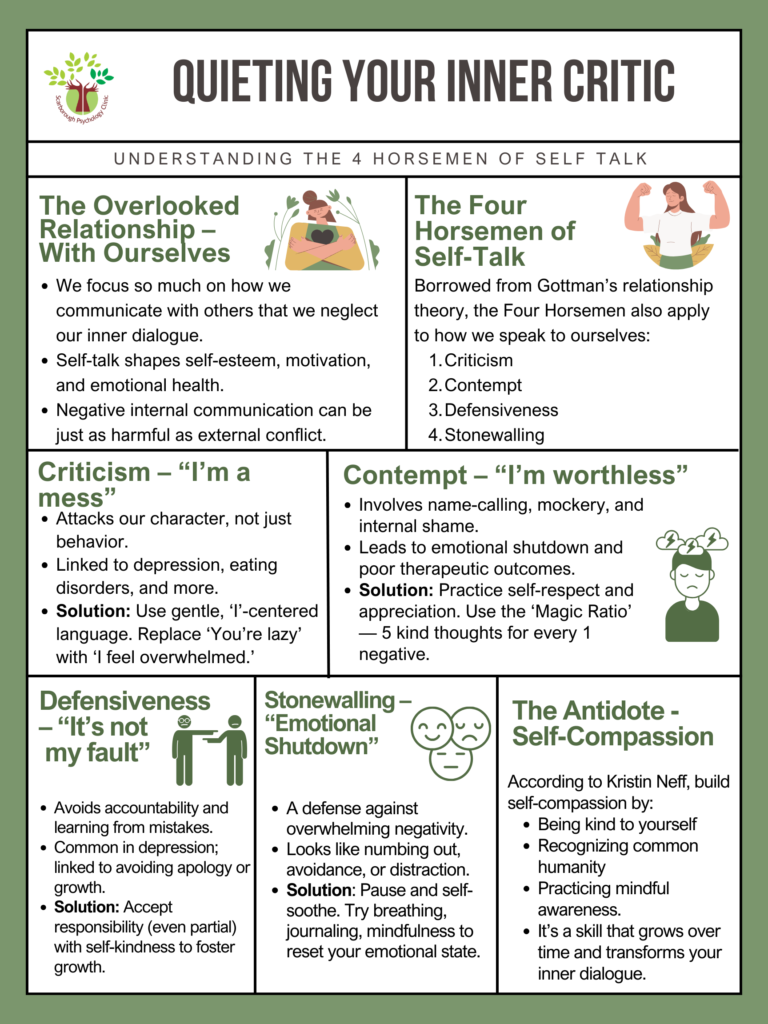In our lives, we encounter many different types of relationships–those with our parents, friends, children, co-workers, and perhaps the most overlooked yet most important one, the relationship we have with ourselves.
As humans, we are wired with this innate need for connection, and communication is the bridge that makes connection possible. However, while we are too busy paying close attention to how we communicate with others, we rarely remember to stop and consider how we communicate with ourselves.
Because much of our time is spent working and engaging with others, we hardly ever pause to simply sit with ourselves and reflect. We become so consumed with external connections that our internal dialogue is often neglected.
Yet, the way we speak to ourselves plays a crucial role in shaping our self-esteem, motivation, and emotional health. Just as poor communication can harm our relationships with others, negative patterns in our self-talk can affect our relationship with ourselves.
When we experience failure, rejection, or self-doubt, the way we speak to ourselves matters just as much, if not more, than how others speak to us.
Therefore, it is essential to recognize the negative patterns that can quietly affect our inner dialogue. These patterns often go unnoticed, however, they can shape how we see ourselves.
What are the Four Horsemen?
Psychologist Dr. John Gottman identified four destructive communication patterns that predict the breakdown of relationships: criticism, contempt, defensiveness, and stonewalling. These are known as the Four Horsemen.
While the Four Horsemen are typically used to analyze communication between partners, they can also show up in communication with ourselves.
The First Horseman: Criticism
The first horseman is criticism. According to the Gottman Institute, criticism is seen as an attack to your character rather than addressing a specific behavior (Lisitsa, 2024). Therefore, this internal criticism can make us feel attacked, rejected, and deeply wounded by our own thoughts.
Over time, this inner critical voice grows louder and more frequent, as a result, what starts as “I messed up” can slowly evolve into “I’m a mess,” with constant internal criticism.
A systematic review conducted by McIntyre et al. (2018) aimed to investigate whether self-criticism is strongly linked with the later development of psychological symptoms. The review concluded that, particularly in the case of depression, engaging in self-criticism can predict an increase in depressive symptoms over time. In addition, self-criticism has also been associated with eating disorders (Speranza et al., 2003) and bipolar disorder (Francis-Raniere et al., 2006)
Therefore, self-criticism is not just negative self-talk. It is a powerful force that can increase our risk for deeper psychological struggles over time.
How to tackle?
One way to reduce self-criticism, according to The Gottman Institute, is to use a gentle start-up. This means expressing concerns with “I” statements rather than blame-filled “you” statements.
This approach encourages us to express concerns by complaining without blaming. For example, instead of saying, “You’re so lazy,” try, “I’m feeling overwhelmed and wish I had more energy.” This shifts the focus to your feelings and needs without attacking yourself.
The Second Horseman: Contempt
The second horseman is contempt. At its core, contempt makes us feel inferior and undeserving of kindness, even from ourselves. When we communicate with contempt, we disrespect our own worth by calling ourselves names, mocking our behavior, and dismissing our feelings. The goal of contempt in self-talk is to make us feel despised, worthless, and unlovable (Lisitsa, 2024).
A study conducted by Beuchat et al. (2024) investigated expressed self-contempt in psychotherapy. The study found that self-contempt disrupts emotional processing in a way that negatively influences both therapy and its outcomes.
How to tackle:
To counteract contempt, The Gottman Institute advises to build relationships on appreciation and respect, that is regularly showing gratitude and expressing affection to your partner. But what if we applied this same idea to the way we treat ourselves?
Practicing self-appreciation and self-respect is one of the most effective ways to combat self-contempt. By regularly expressing gratitude and kindness toward yourself, you begin to build a more positive and resilient mindset that can help buffer negative emotions.
The Gottman Institute introduced the concept of the “magic ratio,” which suggests that maintaining five positive interactions for every one negative interaction is key to healthy relationships. When applied to our inner dialogue, this means intentionally responding to each self-critical or contemptuous thought with at least five positive or compassionate ones.
Over time, this consistent effort can shift your internal narrative away from harsh self-judgment and toward greater self-acceptance. By celebrating small wins and practicing encouraging self-talk, you create a mental space where self-compassion can thrive and self-contempt gradually loses its hold.
The Third Horseman: Defensiveness
The third horseman is defensiveness. The Gottman Institute states that defensiveness is usually a response to feeling accused or threatened, and is often a way for us to shift the blame in order to protect ourselves (Lisitsa, 2024).
In our internal world, defensiveness can look like making excuses for our mistakes. As such, instead of holding ourselves accountable, we may deflect by saying things like, “It’s not my fault.”
A study conducted by Duan et al. (2022) investigated how individuals with Major Depressive Disorder (MDD) exhibit specific maladaptive action tendencies. The study found that people with MDD were less likely to apologize for their wrongdoings, suggesting a defensive response that may involve avoiding accountability.
How to tackle:
While being defensive towards our own wrong-doings can shield us from temporary discomfort, ultimately it prevents us from learning and moving forward.
Therefore, the antidote of defensiveness is just like in relationships, accepting responsibility, even only for part of the problem. Accepting responsibility translates to accepting your role in the issue with kindness, rather than blame or denial. Thus, by taking responsibility for even part of the conflict can lead to self-growth.
The Fourth Horseman: Stonewalling
The fourth horseman is stonewalling. According to the Gottman Institute, stonewalling is typically a response to contempt. Stonewalling means emotionally tuning out by shutting down, avoiding our feelings, or distracting ourselves (Lisitsa, 2024).
Stonewalling only occurs when the negativity created by the prior three horsemen becomes too overwhelming to handle, such that stonewalling appears to be an understandable way ‘out’.
How to tackle:
In one of The Gottman Institute’s longitudinal studies, researchers interrupted couples mid-argument and asked them to read magazines for thirty minutes before continuing the discussion. After the break, participants’ heart rates had dropped significantly, and their conversations became noticeably more positive and productive.
This principle can also be applied to our inner world. When we notice signs of emotional flooding, such as racing thoughts, tension, or shallow breathing, it’s a signal to pause.
Shifting our focus away from distressing thoughts and engaging in self-soothing practices like deep breathing, journaling, or mindfulness for at least 20 minutes can help regulate our nervous system and bring us back to a more grounded emotional state.
Taking a break isn’t avoidance but it’s a way to return to ourselves with more clarity, calm, and compassion.
Final Thoughts
Ultimately, changing how we speak to ourselves starts with lf-compassion. As Kristin Neff, a leading researcher on self-compassion, recommends, self-compassion means offering yourself the same kindness, care, and grace you would give to a loved one.
To nurture self-compassion, try practicing these three key steps recommended by Kristen Neff:
- Be kind to yourself → offer yourself warmth and understanding instead of harsh judgment.
- Recognize common humanity → accept that suffering and failure are natural parts of the human experience, and you’re not alone in them.
- Practice mindful awareness → hold your painful thoughts and emotions in balanced attention, without ignoring or exaggerating them.
Remember, self-compassion is a gentle practice that grows with time, gradually becoming a steady light that supports you through challenges, nurturing healing, strength, and deep inner peace. (Neff, 2015)
Ready to quiet your inner critic?
If you’re struggling with persistent self-criticism, emotional overwhelm, or simply want to build a kinder inner dialogue, therapy can help you find your voice again.
At Scarborough Psychology Clinic, our experienced clinicians provide a safe, compassionate space to explore your inner world and develop self-compassionate strategies that truly work.
📞 Call us today at (416) 123-4567
📅 Book an appointment online in minutes
🌱 Scarborough Psychology Clinic – Compassionate Care for a Brighter Tomorrow
Further Readings
Beuchat, H., Grandjean, L., Junod, N., Despland, J.-N., Pascual‑Leone, A., Martin‑Sölch, C., & Kramer, U. (2023).Evaluation of expressed self-contempt in psychotherapy: An exploratory study. Counselling Psychology Quarterly, 37(2), 216–231. https://doi.org/10.1080/09515070.2023.2201417
Duan, L., Zanolie, K., & Cremers, H. R. (2022). Blame-related maladaptive action tendencies are distinctive of people with major depressive disorder. Frontiers in Psychiatry, 13, 875614. https://www.ncbi.nlm.nih.gov/pmc/articles/PMC8756141/
Gottman Institute. (n.d.-a). The Four Horsemen: The antidotes. The Gottman Institute. https://www.gottman.com/blog/the-four-horsemen-the-antidotes/
Gottman Institute. (n.d.-b). The Four Horsemen: Recognizing criticism, contempt, defensiveness, and stonewalling. The Gottman Institute. https://www.gottman.com/blog/the-four-horsemen-recognizing-criticism-contempt-defensiveness-and-stonewalling/
McIntyre, R., Smith, P., & Rimes, K. A. (2018). The role of self-criticism in common mental health difficulties in students: A systematic review of prospective studies. Mental Health & Prevention, 10, 13–27. https://doi.org/10.1016/j.mhp.2018.02.003
Neff, K. D. (n.d.). What is self-compassion? Self-Compassion. Retrieved July 25, 2025, from https://self-compassion.org/what-is-self-compassion/
O’Connor, L. E., Berry, J. W., Weiss, J., Bush, M., & Sampson, H. (2006). Interpersonal guilt: The development of a new measure. Bipolar Disorders, 8(6), 653–663. https://doi.org/10.1111/j.1399-5618.2006.00337.x
Speranza, M., Atger, F., Corcos, M., Loas, G., Guilbaud, O., Stéphan, P., Pérez-Díaz, F., Halfon, O., Venisse, J.-L., Bizouard, P., Lang, F., Flament, M., & Jeammet, P. (2003). Depressive psychopathology and adverse childhood experiences in eating disorders. European Psychiatry, 18(8), 377–383. https://doi.org/10.1016/j.eurpsy.2003.04.001


